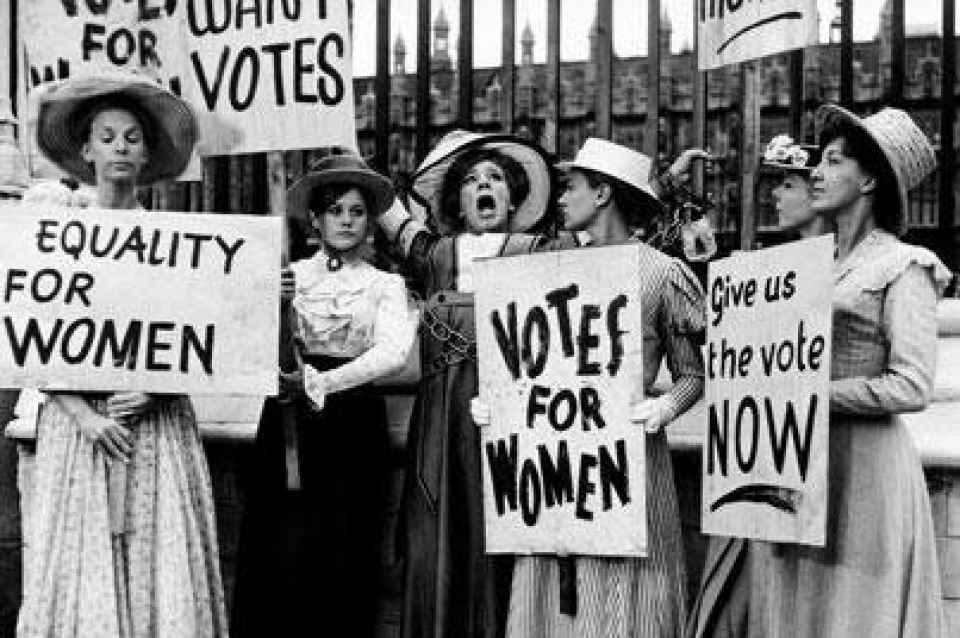Mudassir Rizwan
The late 19th and early 20th centuries witnessed a global movement advocating for women’s right to vote, a pivotal moment in history. This movement, which led to significant milestones such as New Zealand becoming the first nation to grant women the right to vote at a national level in 1893, burgeoned into a worldwide campaign. Its aim was to dismantle long-standing patriarchal systems and secure equal political rights for women. The culmination of these efforts is embodied in the Convention on the Elimination of All Forms of Discrimination Against Women (CEDAW), established in 1979. This pivotal international treaty represents a cornerstone in the fight for gender equality, affirming women’s suffrage as a fundamental human right.
Despite these landmark developments, the reality is that the global landscape remains fraught with challenges that hinder women’s ability to exercise their right to vote. However, women have shown remarkable resilience in the face of these obstacles. While legislative frameworks may assert women’s suffrage as a constitutional right, numerous obstacles persist, particularly in regions plagued by entrenched cultural and societal norms. For instance, in Syria, the political turmoil and conflict have effectively marginalized women from engaging in political discourse and activities, including crucial negotiations related to peace-building. Women’s voices are therefore rendered silent, despite their significant contributions and perspectives being necessary for comprehensive and effective solutions to national crises.
In Pakistan, although the constitution guarantees women the right to vote, the practical application of this right is inconsistent, particularly in rural and conservative regions. Here, local power dynamics often undermine women’s access to the polls. Influential figures within communities leverage patriarchal customs to impose barriers on women’s voting rights, perpetuating a cycle of disenfranchisement. This results in numerous women being systematically excluded from the electoral process, as societal pressure and intimidating tactics deter them from participating. As a consequence, the political landscape remains skewed, failing to reflect the diverse interests and needs of the entire population.
Similarly, Afghanistan presents a worrying example of how procedural changes can exacerbate barriers to voting for women. Recent decisions by authorities to implement mandatory photo screening at polling stations have complicated the voting process, particularly in conservative areas where women traditionally cover their faces in public. This requirement not only poses logistical challenges but also serves to reinforce a culture of surveillance and control, undermining women’s autonomy and agency. In such contexts, the right to vote transforms from a constitutional privilege into a significant challenge fraught with societal risks and repercussions.
The juxtaposition of the progress achieved in women’s suffrage with the challenges that persist underscores the critical need for continued advocacy and reform. Achieving women’s rights in the political domain is not just about enacting laws, but also about shifting societal attitudes and dismantling the barriers that prevent women from fully exercising their rights. It is essential to critically examine the present state of women’s involvement in politics. While laws might exist on paper, the lived realities of women often tell a different story.
The fight for women’s suffrage is emblematic of a broader struggle for human rights and equality. It is imperative for activists, policymakers, and society as a whole to recognize the essential role women play in governance and decision-making. The ongoing challenges faced by women in various contexts reveal the depth of entrenched patriarchal norms, highlighting that the attainment of rights cannot be taken for granted. Societies that strive for equality must ensure that every woman, regardless of her geographic or socio-economic context, possesses the opportunity to vote and engage in the political process without fear or impediment.
International solidarity and support are crucial in addressing the persistent gender inequalities. The global community must stand united in upholding the principles of CEDAW and other frameworks aimed at promoting gender equality. This includes not only advocating for legislative reforms but also actively confronting the cultural and societal factors that perpetuate discrimination. Such solidarity can manifest through various avenues, including education initiatives, grassroots movements, and legislative lobbying, all aimed at amplifying women’s voices and instilling a sense of agency.
Ultimately, the struggle for women’s suffrage is an ongoing narrative marked by significant achievements and stark realities. While the historical milestones of the suffrage movement reflect progress, they also remind us of the ongoing work required to ensure that all women are empowered to exercise their rights freely and fairly. It is vital to remain vigilant in our pursuit of gender equality and to recognize that the fight for women’s suffrage is far from over. As new challenges emerge, so too must our resolve to advocate for the rights of women, ensuring that their voices are heard and their votes counted in every corner of the globe.

















